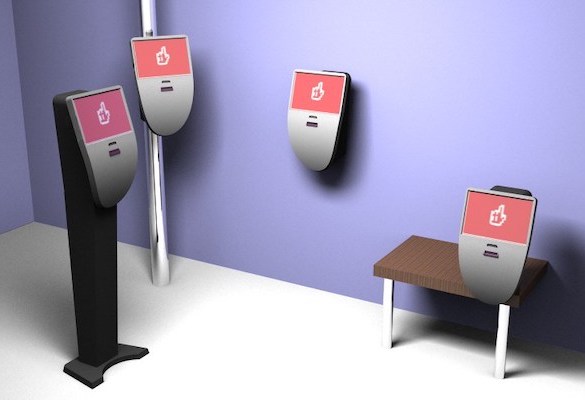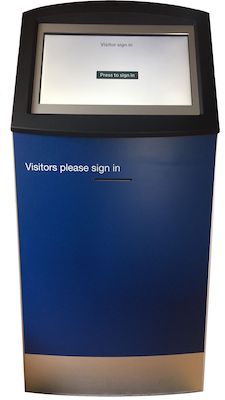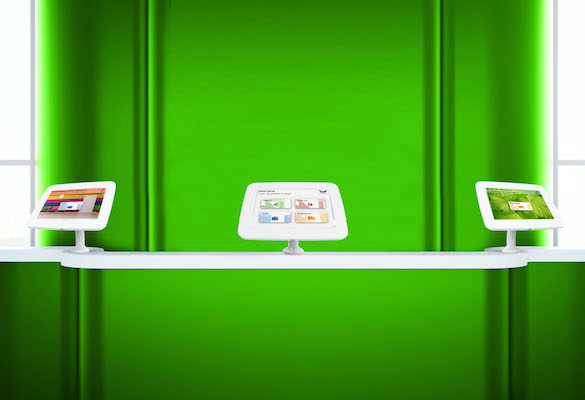It's time to get a kiosk. Where to start? Google probably. Hopefully you found this article pretty quickly after that.
If we're honest, most people wouldn't cite touchscreen kiosks as their area of expertise. That generally means that when people have to select an appropriate kiosk for their organisation it can be a bit of a struggle. If you have found yourself in that position then we've written this article to help you. We won't get technical, we'll just try to make sure you consider the things you need to consider. If you want to get technical just get in touch.
Cost
First things first… you need to decide your budget. The prices of kiosks vary pretty wildly. That means that if you don't have your budget sorted you could spend a lot of time wasting time looking at kiosks that you're never going to buy.
It may sound counter-intuitive to tell a vendor how much you want to spend on something. The assumption often being that if you tell a vendor what you want to spend they will just up their price to that level. In our experience that is not the case with kiosk vendors. Generally vendors will have a few different kiosks at various price points. As such they can work to your budget and make sure you get a kiosk that fits your needs and falls within your budget.
Function
You no doubt know what you want your kiosk to do but may not have considered how it will do it. If you are looking for a kiosk that can print badges, dispense cards or take payment, for example, you need to bear in mind all the peripherals take up space. Sometimes a lot of space. Not all kiosks are able to have peripherals such as these installed. You should therefore make sure the kiosks you are looking at can house the hardware you need them to house. It is likely you will be able to find out this information online. Failing that, just have a chat with the vendor. They will very quickly be able to tell you and suggest similar alternatives if needs be.
Placement
The first question you need to answer here is, "Will your kiosk be indoors or outdoors?" If outdoors you have a few more things to consider so we'll have a quick look at them.
If you are installing the kiosk in a particularly hot / cold location you need to make sure it has the appropriate cooling / heating system to allow it to operate in such conditions. There's also a reasonable likelihood that the screen will be in direct sunlight at some point. If so you will need an extra-bright screen. Whilst you don't need to know exactly what you're after, you will need to tell the kiosk vendor this sort of information. That way they can ensure you get a suitable kiosk.
If the kiosk is for indoor usage there is less to concern yourself with however there are still things you should consider. If the kiosk is going to be unattended then it may need to be pretty tough. Whilst vandalism isn't necessarily going to be a problem you should assume that the kiosks are unlikely to be treated with particular care. Have a chat with your vendor, explain where they will be and how often you expect them to be used. The vendor will then be able to advise you accordingly.
Security
This point will apply to both the kiosk hardware and your kiosk software.
Kiosk hardware-wise you need to think about what will be in the kiosk. For smaller kiosks, such as desktop iPad kiosks, you need to think about how the kiosk itself will be secured. If the kiosk takes cash payments you need to make sure it is tough enough to stop it being broken into. If you are going to have something like a desktop iPad kiosk you need to make sure it can be secured to the desk it sits on.
When looking at kiosk software you should try to ensure no sensitive data is held on the kiosk itself. Your software vendor will be able to advise you on this subject. If you are using an application that does hold data locally you need to make sure the software is "locked down". That is to say that without very specialised knowledge and skills no-one can get at the data. Some entry-level / free software may store data locally in order to keep the price down for customers. If you are paying a reasonable amount for your kiosk software and the data is to be stored locally on the kiosk itself we would generally advise you look for something different.
Look & Feel
Whilst not necessarily the most important aspect you will still want to make sure your new kiosk looks good. That, again, goes for the kiosk hardware as well as the kiosk software.
You want your kiosk to be used and so making it look good to entice people to use it is important. It is going to be a reflection of your organisation so make sure it impresses the users and is branded accordingly. Talk to your kiosk vendor about what you can do. Generally you can have a kiosk customise to match your brand. Add your organisation's logo, colour schemes and relevant messages. Also make it clear what the kiosk is for.
When you've got your kiosk looking good you need to make sure the kiosk software it runs also looks good and is intuitive for its users. We've seen some horrible examples where organisations have spent thousands of pounds (sometimes tens of thousands!) on their kiosks, had them branded up so they look smart only for them to be ruined by extremely unattractive and flawed software. Make sure your kiosk software vendor works with you to design the look and feel of the software. They should be able to coach, advise and guide you and show you some mockups before they actually put the software into production. Make sure you are just as happy with the look and feel of the software as you are with the hardware. After all it is the kiosk software people are looking at and using once they're actually at the kiosk.
Conclusion
If you consider all of these point in advance you should end up with a kiosk solution you are truly happy with. Make sure you use vendors' expertise to guide you and don't be concerned with asking what you may consider to be "stupid questions". Kiosk hardware and software vendors will not expect you to have a wealth of knowledge and will be very used to answering what, to them, are simple questions. If you're speaking to a good vendor they will enjoy this aspect and be pleased to help in any way they can. As I touched on at the beginning of the article, most people wouldn't cite touchscreen kiosks as their area of expertise.








